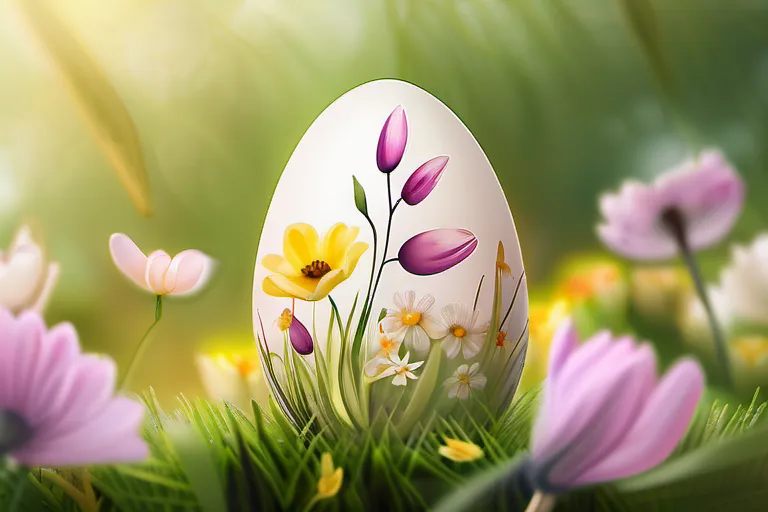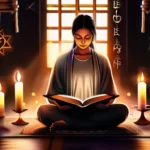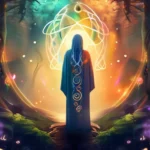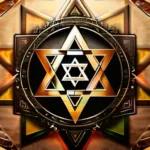Discover the origins, symbolism, and customs surrounding the global celebration of Easter
Easter is a significant religious and cultural holiday celebrated by millions around the world. This article will delve into the history, significance, and various traditions associated with this ancient festival.
The Origins and History of Easter
Imagine stepping back through time, tracing a journey from ancient civilizations to the heart of Christian history—how do you begin this quest? By delving into the origins and history of Easter, we embark on a fascinating exploration that unravels layers of tradition, myth, and religion.
Easter’s roots are deeply intertwined with Pagan celebrations. In the springtime, when nature awakens from its winter slumber, ancient cultures celebrated the revival of life through festivals dedicated to fertility and rebirth. The Vernal Equinox, marking the beginning of spring, was a significant time for honoring gods associated with renewal and growth—such as Eostre in Germanic paganism.
But how did this pagan celebration evolve into a Christian holiday? The early Church faced a monumental challenge: to integrate the teachings of Jesus Christ with existing cultural practices. One theory suggests that Easter was chosen because it coincided with the Jewish Passover, celebrating the liberation of the Israelites from slavery in Egypt—a story rich in themes of redemption and freedom. This convergence helped bridge the gap between pagan populations and new Christian converts.
The blending of these traditions can be seen through symbols like the rabbits, which represent fertility and new life, just as Christ’s resurrection symbolizes a spiritual rebirth. Similarly, the eggs used in both cultures—Eostre’s festival and Passover—were transformed into representations of new life, reflecting the profound change brought about by Christ.
By exploring these ancient origins, we not only uncover the rich tapestry of Easter’s history but also gain a deeper understanding of how religious practices can evolve over centuries. This journey from paganism to Christianity highlights the adaptability and resilience of traditions, showing us that even in the face of change, certain themes—like life, death, and rebirth—remain constants.
The Significance of Easter in Christianity
The significance of Easter in Christianity cannot be overstated. It marks the pivotal moment when faith and history converge, representing more than just a holiday; it’s a celebration of hope and renewal. But why is the Resurrection so central to Christian belief?
Imagine you’re standing at the foot of the cross, watching in disbelief as Jesus’ body lies there after a brutal crucifixion. The despair must have been overwhelming for those closest to Him. Yet, the Easter story tells us that this moment was merely the beginning. Could it be that the resurrection wasn’t just an end but a new chapter?
The resurrection of Jesus Christ is not just a religious event; it’s a powerful metaphor for overcoming adversity and finding new life. In Christianity, the Resurrection symbolizes the triumph over death and the promise of eternal life. This concept resonates deeply within communities worldwide, making Easter a time for reflection and celebration.
How does one grasp such a profound and transformational event? For Christians, it’s not just about believing but experiencing the power of hope and faith in action. Is there anything more uplifting than seeing someone rise from what seemed like an insurmountable defeat?
The Easter story is also a reminder that hope can spring forth from even the most daunting situations. It teaches us to look beyond immediate hardships, knowing that better days are ahead. This belief in resurrection and new beginnings has inspired countless individuals throughout history to persevere through their own challenges.
So, as we celebrate Easter, let’s not just focus on the past but embrace the future with renewed hope. The Resurrection of Jesus Christ is more than a historical event; it’s a powerful symbol that reminds us that life, even in its darkest moments, has the potential to change and grow stronger.
Easter Symbols and Traditions
Imagine peeling back the layers of time to uncover the symbols and traditions that have shaped Easter into the vibrant celebration we know today. What comes to mind when you think about Easter? Perhaps it’s the colorful eggs, the playful bunnies, or the sweet lambs. But do these symbols hold more than just decorative value?
Let’s dive into the rich tapestry of Easter symbolism and explore how they’ve become such an integral part of this festive season.
- Eggs: In many cultures, eggs represent new life and rebirth. This makes them a perfect metaphor for the resurrection of Christ. The act of decorating eggs during Easter is a way to celebrate the hope brought by the Resurrection, much like how an egg hatches into a chick, symbolizing transformation.
- Bunnies: While bunnies may seem out of place in religious contexts, they’re deeply ingrained in the tradition. Rabbits are often associated with fertility and renewal, traits that mirror the themes of new life and rebirth at Easter. The connection to fertility might also be a nod to ancient spring celebrations where nature’s cycles were celebrated.
- Lambs: In Christian symbolism, lambs represent sacrifice and purity, directly linked to the sacrifice of Lamb of God, Jesus Christ. This symbol is deeply intertwined with the narrative of Easter, reminding us of the ultimate sacrifice for humanity’s sins. The lamb also represents innocence and humility, qualities that are central in the Easter story.
These symbols aren’t just decorative elements; they’re gateways to deeper meanings. The egg hunt, for instance, is not just a fun game but an interactive way of teaching children about the joy of discovery and the celebration of new beginnings. Each egg found could represent a hidden treasure or a small gift of hope, echoing the grand narrative of Easter.
As we celebrate these symbols and traditions, let’s remember that behind every colorful decoration lies a profound story of hope, renewal, and the triumph over adversity. So, next time you find an Easter egg or spot a bunny hopping in your garden, take a moment to reflect on what they truly signify—life, love, and the promise of new beginnings.
The Spread of Easter Around the World
As Easter spreads its wings across different cultures, one wonders how this ancient celebration has managed to adapt and evolve in such diverse landscapes. From the snowy plains of Scandinavia to the bustling streets of Brazil, Easter traditions reflect a fascinating blend of historical influences and local customs. In Denmark, for instance, people celebrate ‘Påsk,’ where children receive eggs wrapped in beautiful baskets. But why do these traditions vary so much?
In Germany, the tradition of the Easter Bunny is celebrated with a fervor that’s hard to match anywhere else. The bunny, or ‘Osterei,’ brings gifts and hides chocolate eggs, similar to how Santa Claus delivers presents at Christmas. But why does this German legend have such a strong hold on popular culture? Could it be because the rabbit symbolizes fertility and new life, making it a perfect fit for a holiday that celebrates renewal?
In Italy, families gather to celebrate Pasqua with a feast of traditional foods like lamb and chocolate eggs. The Easter table is not just about food; it’s a celebration of unity and family bonds. But why do these customs persist? Is it because they carry deep-rooted cultural meanings, or are we simply drawn to the joy and warmth that these traditions bring?
Across the African continent, Easter takes on unique forms in different countries. In South Africa, for example, Easter is often celebrated with community gatherings and charity events, reflecting a blend of religious and social values. How has this adaptation of Easter contributed to social cohesion in such diverse societies? And what can we learn from these regional variations?
As we explore the spread of Easter across cultures, it’s clear that while the core beliefs remain constant—resurrection, new life, and hope—the ways these ideas are expressed vary widely. Each region adds its own flavor to this global celebration, making Easter a truly diverse yet unified holiday. How does your culture celebrate Easter? What unique traditions do you observe?
The Modern Celebration of Easter
As we step into the vibrant world of modern Easter celebrations, it’s hard not to wonder how this ancient holiday has managed to retain its essence while adapting to contemporary times. In many households, Easter is a tapestry woven with threads of family, festivity, and fun. But what exactly makes these gatherings so special? Are they just about the eggs and bunnies, or do they carry deeper meanings?
The heart of any Easter celebration often lies in the family get-together. These reunions can be seen as a modern-day version of community bonding, where relatives gather to share stories, laughter, and meaningful conversations. The table is set with an array of traditional and modern dishes, each carrying its own significance and taste. Is it just about filling the stomach or is there something more profound happening? Isn’t sharing food a universal language that binds hearts together?
Easter-themed activities add a playful touch to these family gatherings. From egg hunts in the backyard to crafting colorful baskets, these activities are like stepping stones in a metaphorical journey through time and tradition. They remind us of our roots while allowing us to explore new ways of celebrating. Do these activities merely entertain or do they serve as powerful tools for teaching and learning?
One cannot overlook the central role that food plays in modern Easter celebrations. From ham and roasted lamb, symbolizing the sacrifice and joy of life, to sweet treats like chocolate bunnies, representing new beginnings and growth. Each dish is a story told through flavors. How do these foods connect us to our cultural heritage? Do they play a crucial part in passing down traditions from one generation to another?
In essence, modern Easter celebrations are not just about the holiday itself but about the stories we share, the meals we enjoy, and the activities that bring families closer together. They represent a blend of nostalgia and innovation, tradition and contemporary twists. Are these gatherings merely surface-level festivities or do they resonate with deeper meanings? The answer lies in how we choose to participate and what we take away from each celebration.
The Spiritual Journey of Easter
Imagine Easter as a spiritual journey, much like walking through a garden where each step reveals new insights and lessons. What is Easter? At its core, it represents more than just a holiday; it’s a profound exploration of faith, redemption, and personal growth.
When we think about the significance of Easter, we often reflect on the story of Christ’s resurrection. But what if we consider this not just as an historical event, but as a metaphor for our own lives? Just as Jesus overcame adversity to rise from the dead, could we also face our challenges and emerge stronger?
Easter isn’t merely about past events; it’s about the present moment and our potential for transformation. It’s like embarking on a journey towards enlightenment, where every setback is an opportunity to learn and grow. How can we apply these spiritual lessons in our everyday lives? Perhaps through acts of kindness, forgiveness, or simply being more compassionate towards ourselves.
Moreover, Easter celebrations worldwide offer unique insights into the universal human quest for meaning and connection. From the colorful traditions in Italy’s Pascqua to the solemn processions in Spain’s Semana Santa, each culture weaves its own tapestry of beliefs and practices. These customs are like threads that connect us all, reminding us that despite our differences, we share a common journey.
So, as we celebrate Easter this year, let’s not just enjoy the baskets filled with goodies or decorate our homes with intricate eggs. Let’s also take a moment to reflect on what it means for each of us individually and collectively. How can we use this time to deepen our faith, foster understanding, and bring positivity into our lives?
Easter, in its essence, is about embracing the light that comes after darkness, finding strength in adversity, and nurturing the seeds of hope within ourselves. What journey will you undertake this Easter? Will it be one of reflection, forgiveness, or simply a deeper connection to something greater than ourselves?
Conclusion
 By understanding the origins and symbolism of Easter, we gain newfound appreciation for its impact on our lives and culture today.
By understanding the origins and symbolism of Easter, we gain newfound appreciation for its impact on our lives and culture today.











